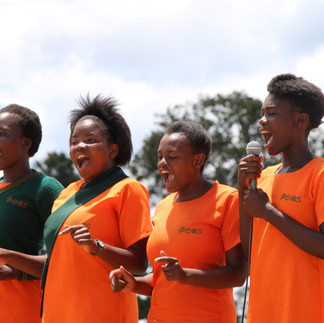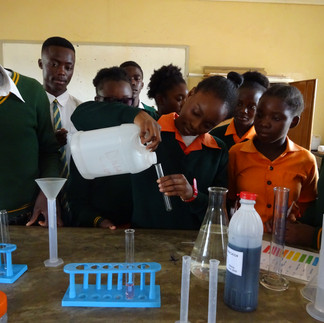Working Together with PEAS (Promoting Equality in African Schools)
- erinorford1
- Feb 7, 2024
- 2 min read
Updated: Oct 14, 2024
"For millions of children across Africa, the end of primary school is the end of their education. Too few schools exist, and those that do, charge unaffordable fees. As a result, just 1 in 3 African children access secondary school. Even when they do, in many cases weak school management and ineffective teaching mean they often don't reach their potential.

A child whose mother can read is 50% more likely to live past the age of five. Each additional year of secondary education adds 13% to a person’s lifetime earnings - that's enough to take a family out of poverty."
Since 2009, we have partnered with PEAS to address the crucial issues of access to quality and affordable education. Their knowledge and approach identify suitable locations for schools to be constructed, before following their well established and sustainable model of PEAS Schools. Working closely with government and local communities, they can provide discounted school places whilst providing a standardised high quality of teaching. PEAS educate communities on the significance of girls staying in education and the reduced fees enable families to fund this for more of their children.

During our partnership, we have supported the acquisition and expansion of 12 schools across Uganda and Zambia. For some schools, additional equipment such as solar panels or computers has improved sustainability and the quality of education and when the pandemic forced schools to close, we redirected our support to be utilised for their remote learning strategy. In addition to directly supporting their projects, we have also utilised our social enterprise film and media company to produce video content for PEAS. Through the videos, PEAS were able to capture the excitement and desire to learn that shines through the students that usually only those who are lucky enough to visit will see. More recently we committed to support their efforts to move into Ghana, which will be their first new country since Zambia in 2012. Ghana is a country with huge disparity in education access between the most marginalised in rural communities and the wealthier in urban cities. The most effective way was to support those already operating in Ghana, both government and education providers. An improvement in the quality of teaching and learning is already evident alongside improved leadership and safeguarding practices.
To see the full playlist of PEAS videos and find out more about the projects, please see their playlist here.








































Comments